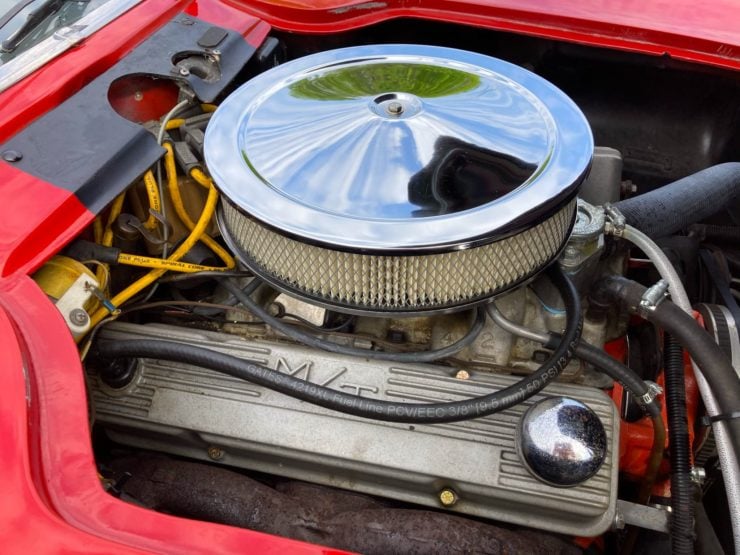This is a Fiberfab Jamaican II, it was built in 1983 using a Fiberfab tubular steel chassis and a sleek, lightweight fiberglass body. Power is provided by a 5.7 liter Chevrolet V8, and the car rides on all-independent suspension.
Fiberfab was an American automotive company that started out building bodykits for cars like the Corvette. By the mid-1960s they were offering kit cars, some of which had custom chassis and bodies, typically fitted with either British or American engines and running gear.
Fast Facts – The Fiberfab Jamaican II
- The Fiberfab Jamaican II was a wider, longer version of the original Fiberfab Jamaican that had been developed to accommodate a V8 engine, and to fit onto the new Fiberfab steel chassis.
- The original Fiberfab Jamaican had been released in 1968, some say it was partly influenced by the Lamborghini Miura. It was essentially a kit including a new fiberglass body that could be fit to the chassis of a TR3, TR4, MGA, or (big) Austin-Healey.
- Many Americans wrote in to the company requesting a V8 version of the Jamaican, and so they developed a new body and chassis that could be fitted with a Corvette V8 and running gear.
- The car you see here is said to have been built in 1983, it uses the Fiberfab chassis and a Jamaican II body, and it’s powered by a 5.7 liter Chevrolet V8, and it has independent front and rear suspension.
The Fiberfab Company Of California
The story of Fiberfab is undeniably one of the most fascinating, and at times tragic, stories in the history of 20th century kit cars.
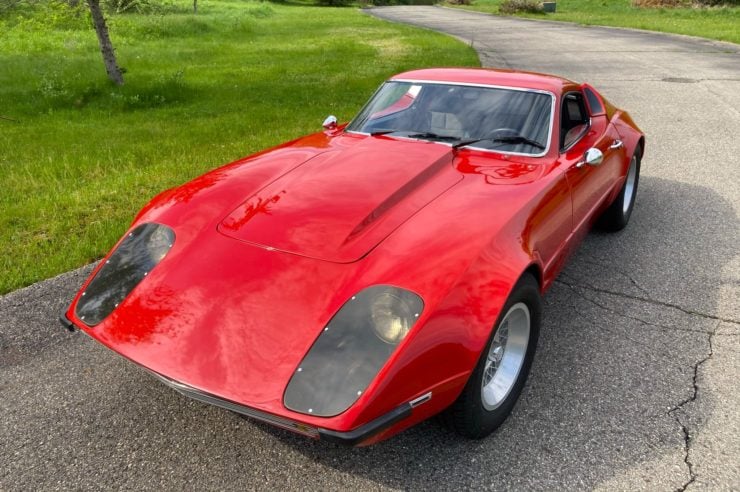
The beautiful design of the Jamaican has been compared to the Lamborghini Miura and there are some similarities, though the two cars are notably different.
The first seed of what would become Fiberfab began as Sports Car Engineering (SCE) in 1957 founded by amateur sports car racer Warren “Bud” Goodwin. He sold the company for a profit just a year later to Du Crest Fiberglass, but he remained interested in starting his own sports car company from scratch.
In 1964 he got his wish, founding the Fiberfab Company with business partner John Hebler in Palo Alto, California. At first the company offered lightweight fiberglass body panels and bodykits for Corvettes, Mustangs, and Jaguars – targeted at people who wanted to lighten their cars for better performance and improved looks.
In 1966 the company launched a line of complete fiberglass body kits including the Apache, Aztec and Aztec II, and the Centurion. The company began producing the Valkyrie in 1967, a kit car based on the Ford GT40 that they claimed was the fastest car in the world at the time, with a top speed of 180 mph. Each Valkyrie is said to have come with a parachute as standard.
The Murder Of Jamaica Goodwin
In 1967 Fiberfab was turned on its head when the company founder Warren Goodwin shot and killed his 28 year old wife Jamaica Goodwin. The exact circumstances are murky, however he was convicted of voluntary manslaughter and sentenced to twelve months imprisonment.
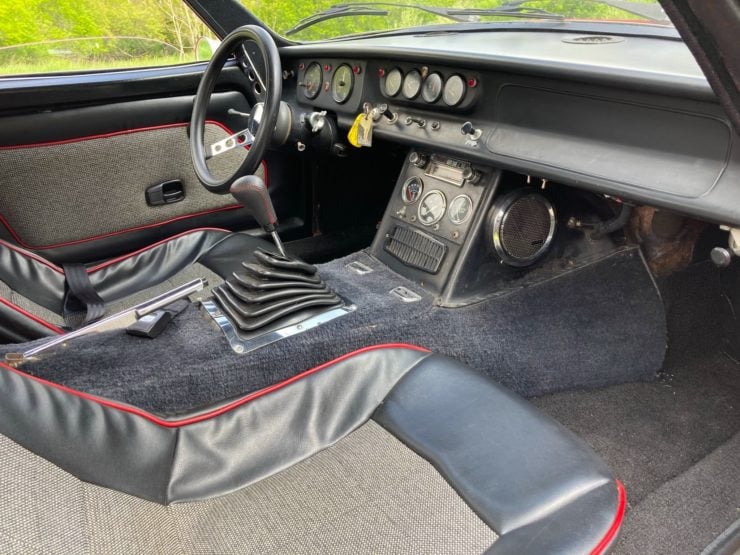
The interior of this Jamaican is quite well equipped by kit car standards, though it could probably do with a refresh now.
Warren Goodwin would never set foot outside of prison again, he died of a massive heart attack just a few months into his sentence in late 1968.
Despite this tragedy Fiberfab continued on, releasing the Fiberfab Jamaican in 1968, a car designed by Chris Bebee that some say was influenced by the Lamborghini Miura.
Fiberfab would go through a few ownership changes over the succeeding years, interestingly the company is still in business today and their website claims that the company is now under new ownership, and that they’re planning to build new turnkey cars.
The Fiberfab Jamaican
The Fiberfab Jamaican was developed in 1967, before the tragic murder of Jamaica Goodwin and the subsequent death of Warren Goodwin. Perhaps as a sign of respect for her the company named the car in her honor, and it would carry her name for the rest of its production run.
The Jamaican was developed as a fiberglass body that could be fitted to the chassis of inexpensive secondhand British sports cars of the era, including the Triumph TR3, TR4, the MGA, or the (big) Austin-Healeys.
The sleek styling ensured the kit was a success, but the company was inundated with requests for a more American version, that could accommodate a large V8 and the subsequent increase in power.
As a result of these requests Fiberfab developed a new steel chassis and a new Jamaican body that was both wider and longer. This new chassis could comfortably accommodate most V8s then in production, and an alternative form of the new body was developed that could fit over a VW Beetle chassis for those who wanted to build one on the cheap.
It’s not known exactly how many examples of the Jamaican II V8 were sold, they’re now the most valuable and sought after of the Jamaican variants, and they offer performance on-par with many American V8 production cars.
The Fiberfab Jamaican II V8 Shown Here
The car you see here is a Fiberfab Jamaican II V8 that’s said to have been built in 1983. It’s powered by a 5.7 liter Chevrolet V8 which is paired with a Turbo-Hydramatic three-speed automatic transmission.
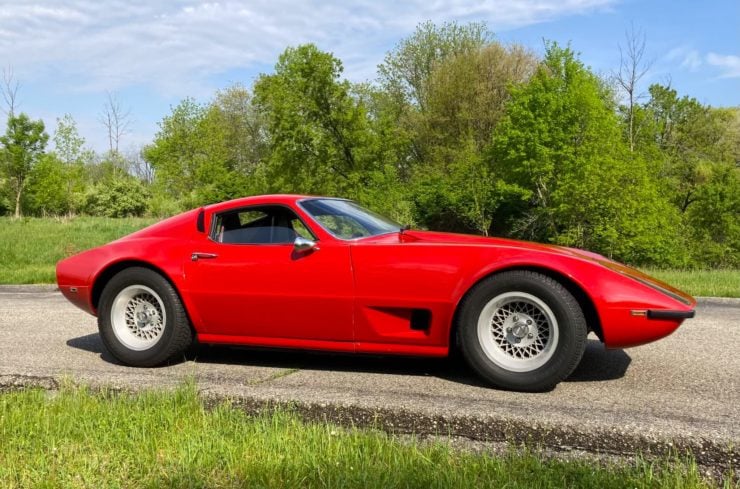
The beautiful lines of the Jamaican have been winning it fans for decades, and they remain popular today in kit car circles.
The new owner may want to make a few changes to the car, the windshield wipers are currently non-functional, that Lamborghini badge on the dashboard needs to go, and the automatic transmission would ideally be changed out for a four or five-speed period-correct manual box.
The fiberglass bodywork is finished in red, it has black vinyl and cloth upholstery, and it’s equipped with chrome side mirrors, 15” Enkei wheels shod with 235/60 Mastercraft Avenger G/T tires, and a push-button AM/FM radio.
The interior of the car is spartan but relatively well equipped by the standards the kit car world, the odometer shows 13,000+ miles but true mileage is unknown. The Chevrolet V8 is topped by a four-barrel Quadrajet carburetor and the car independent suspension front and back, consisting of a combination of Chevrolet and Ford parts.
This car is currently being offered for sale on Bring A Trailer out of Ada, Michigan. If you’d like to read more about it or register to bid you can visit the listing here.
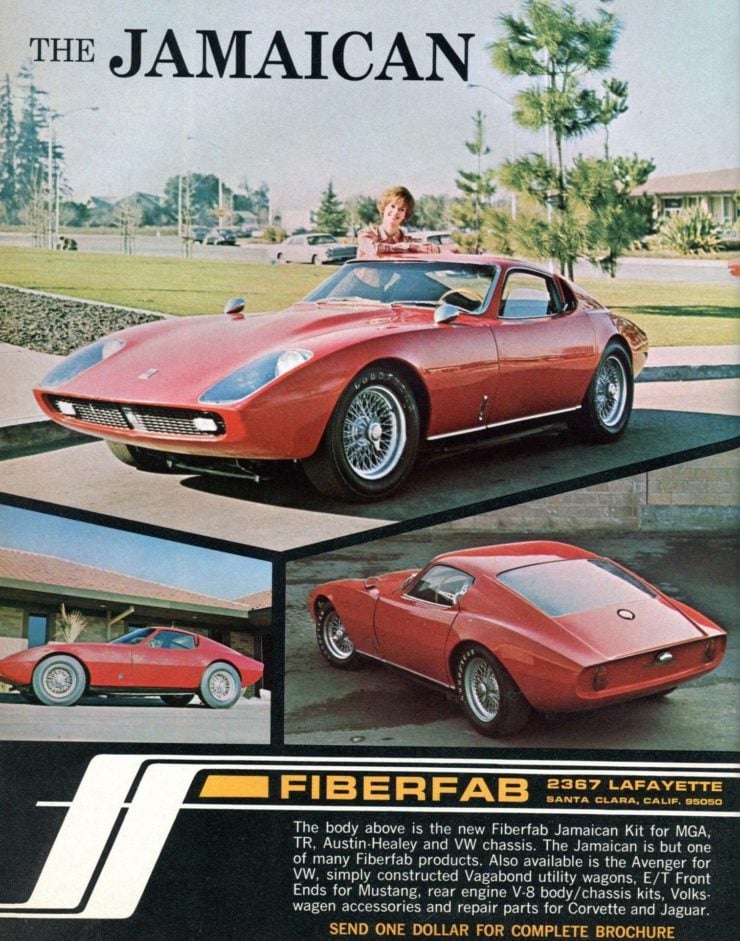
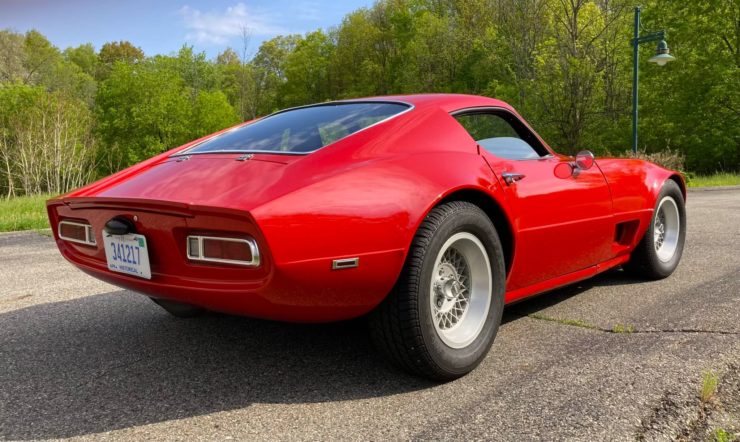
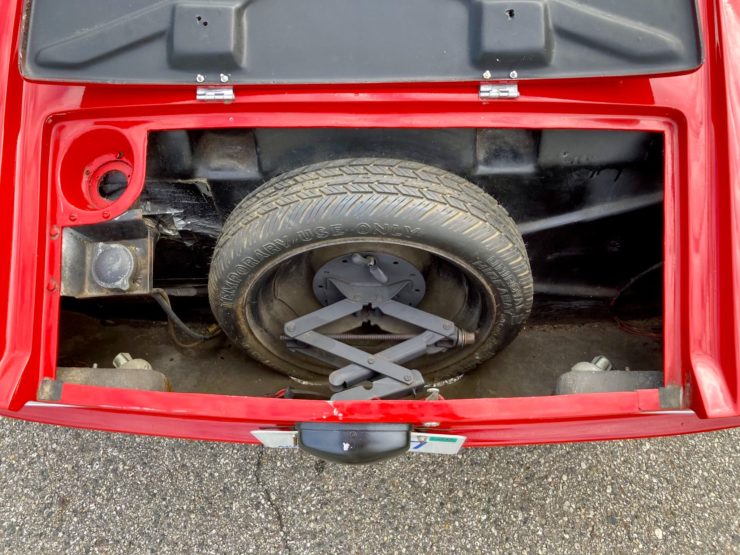
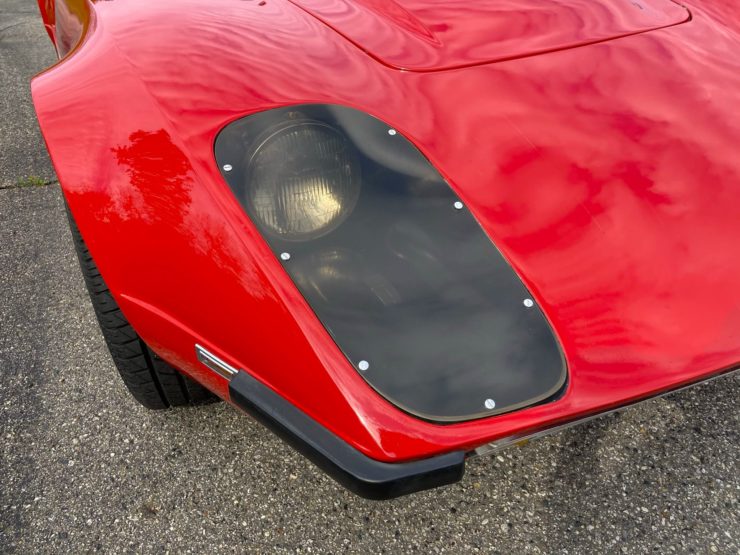
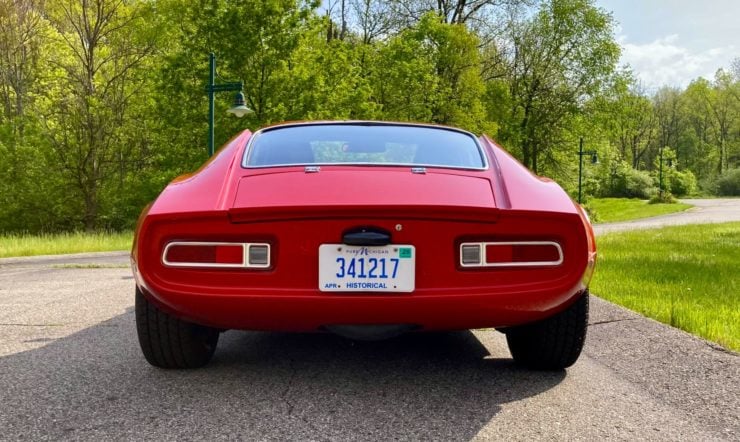
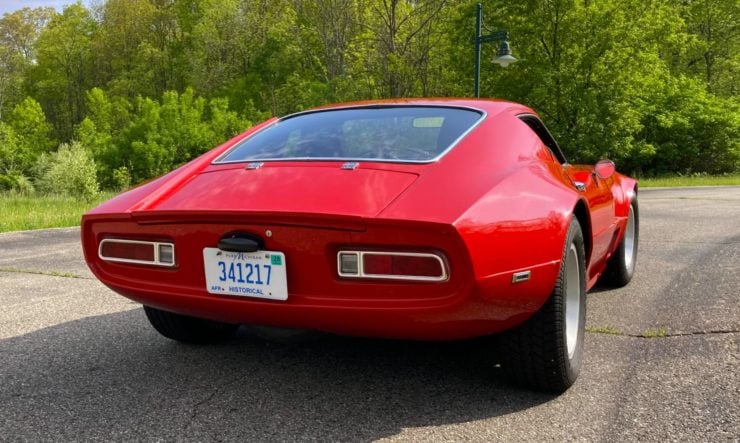
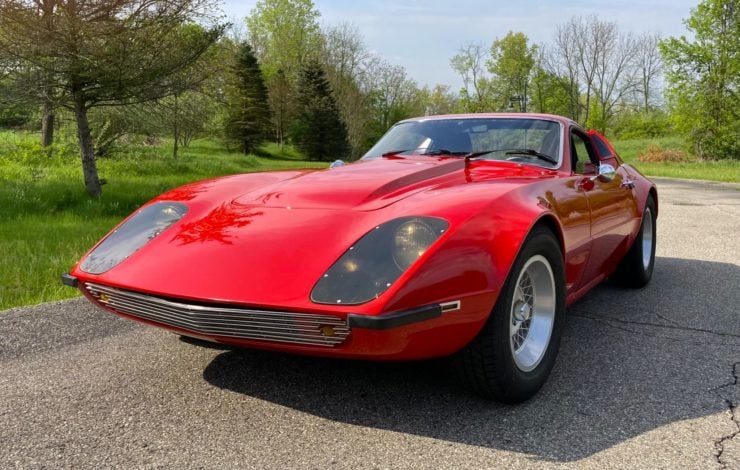
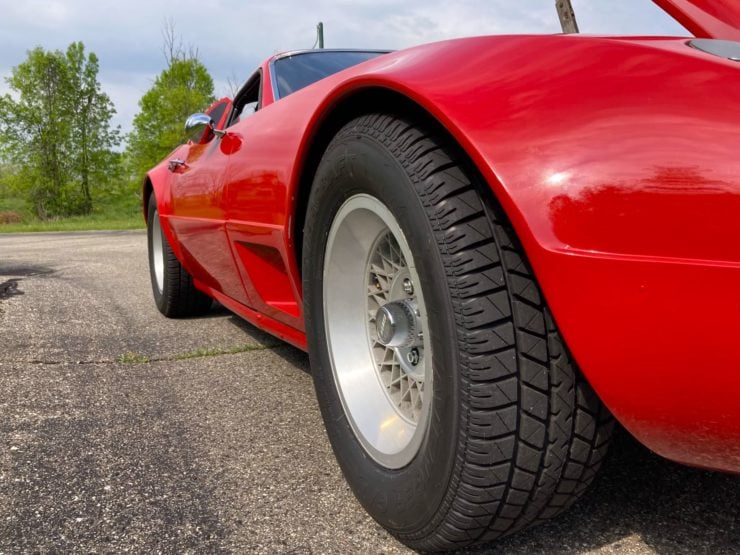
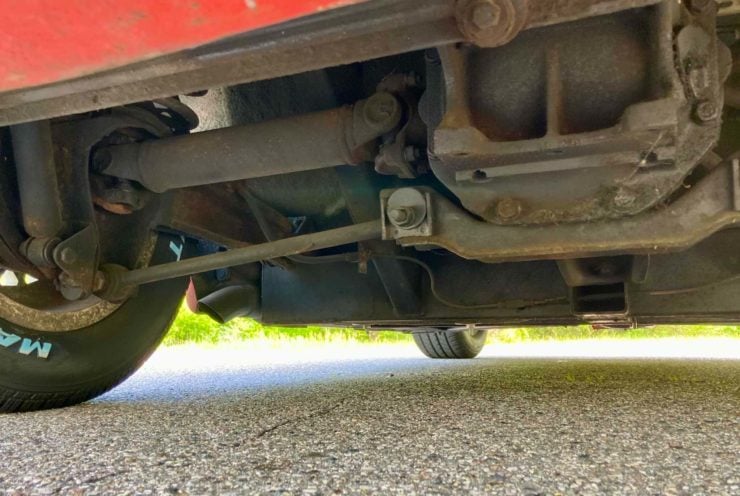
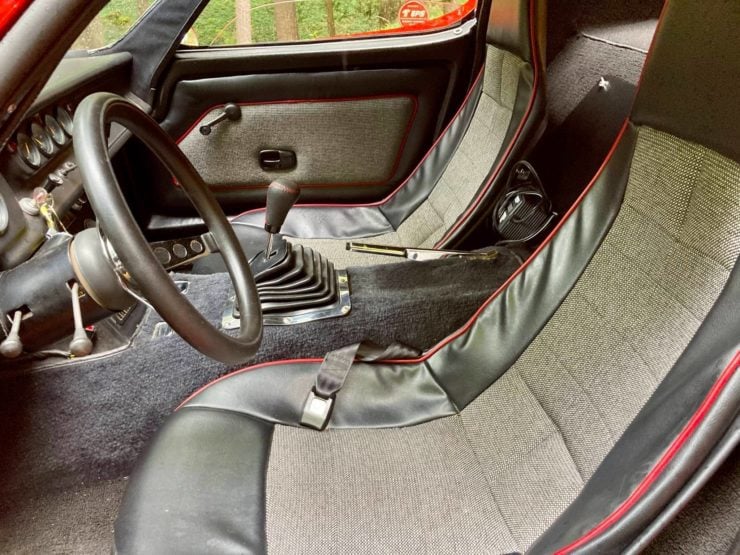
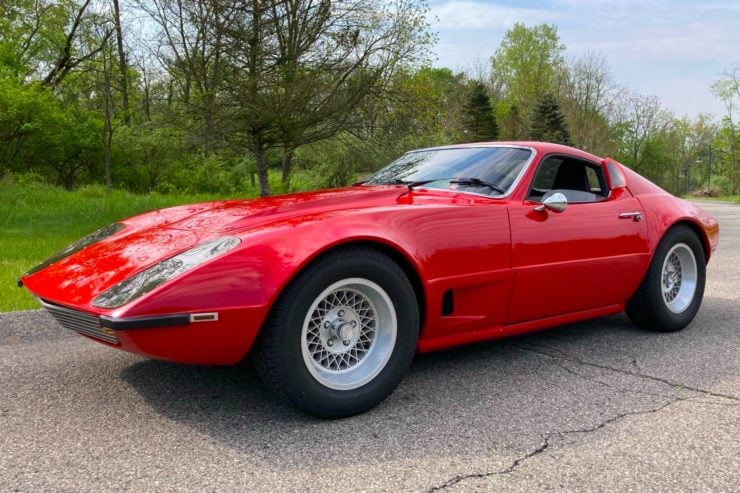
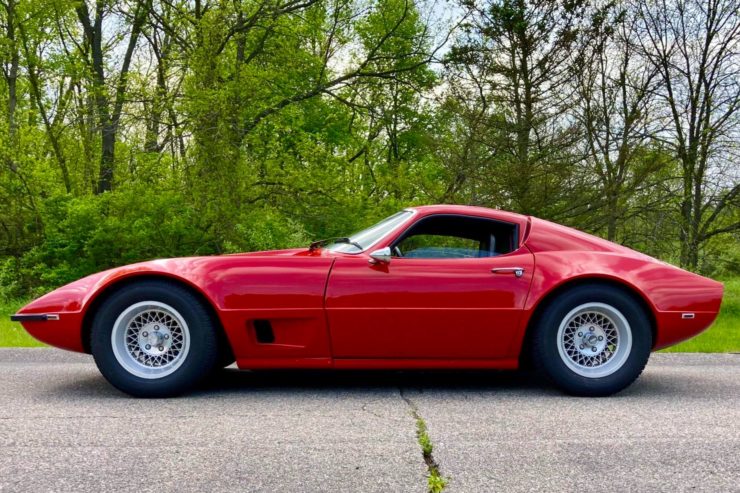
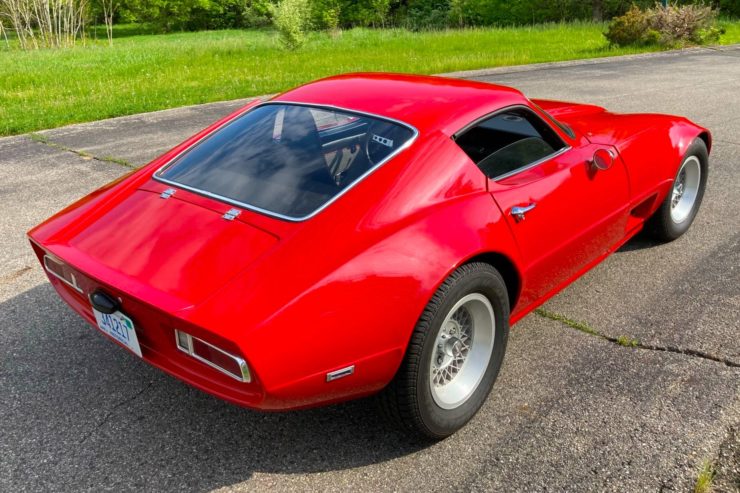
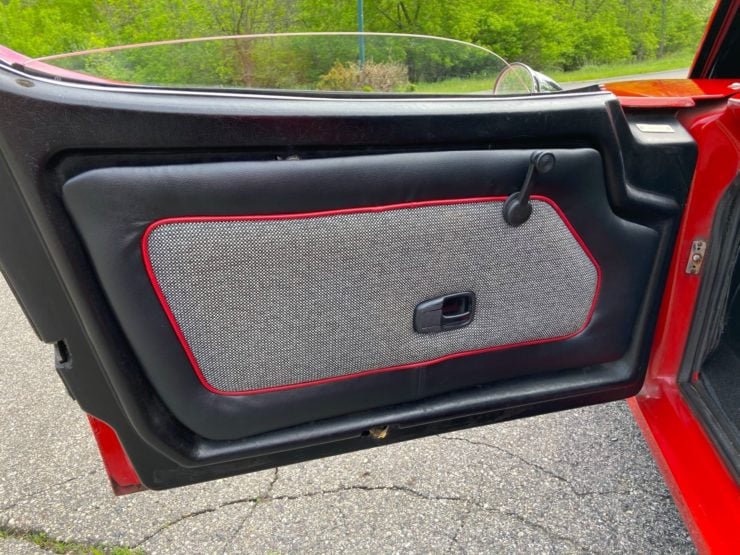
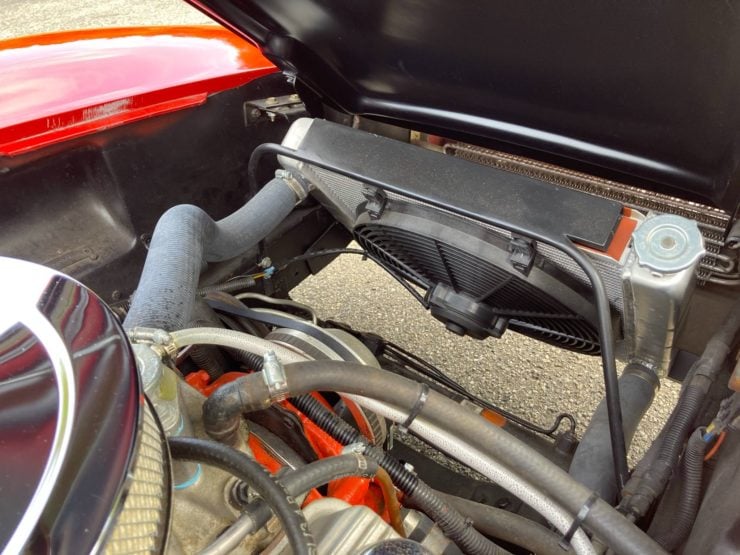
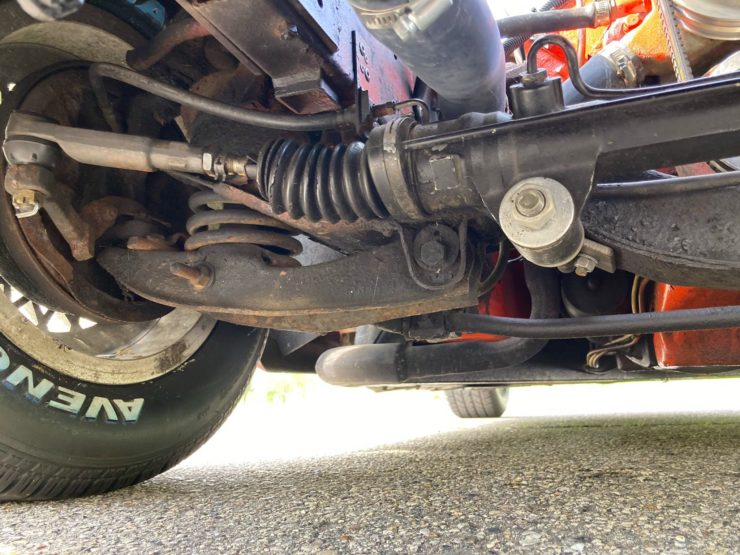
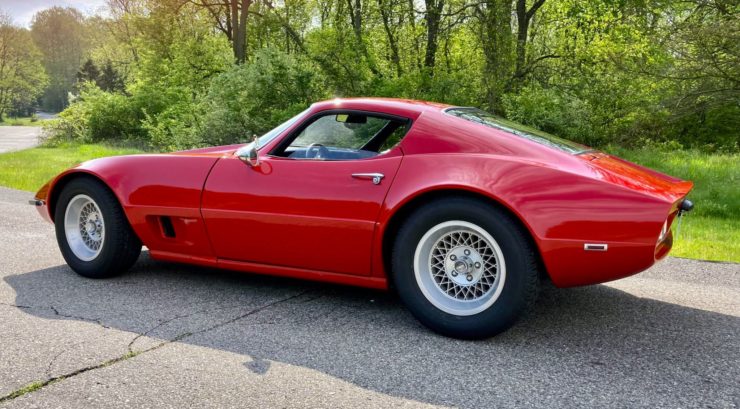
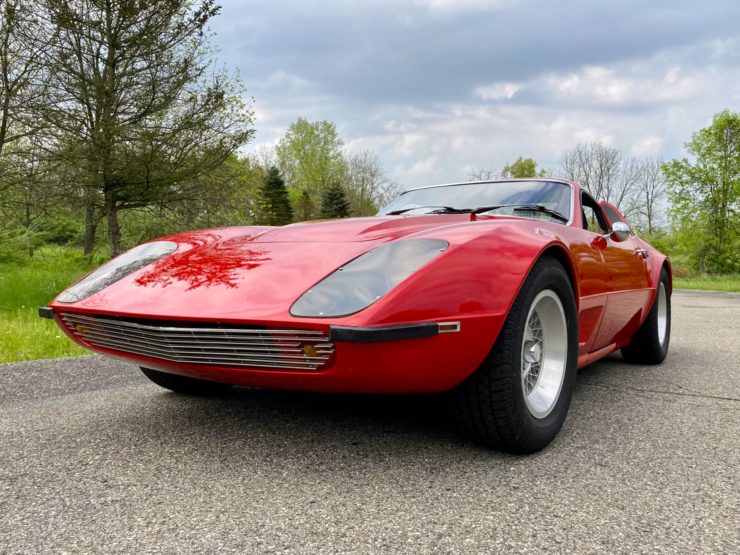
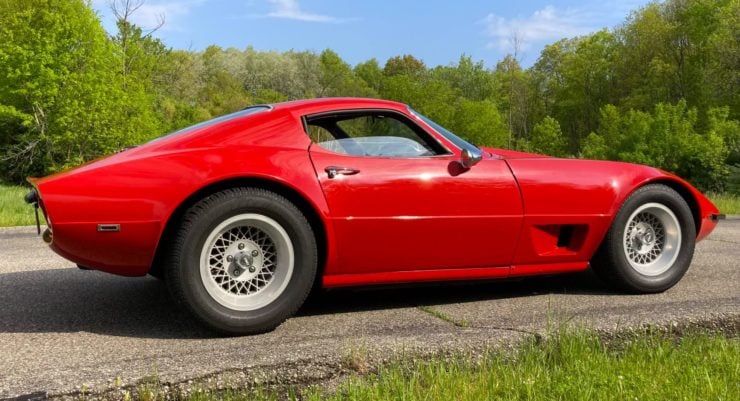
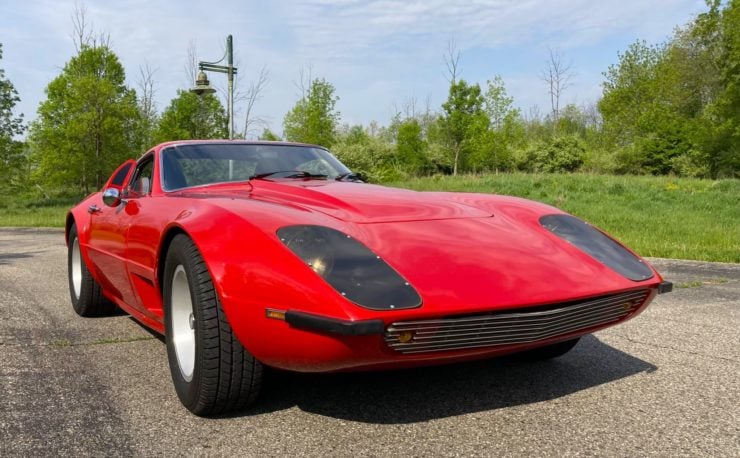
Images courtesy of Bring A Trailer
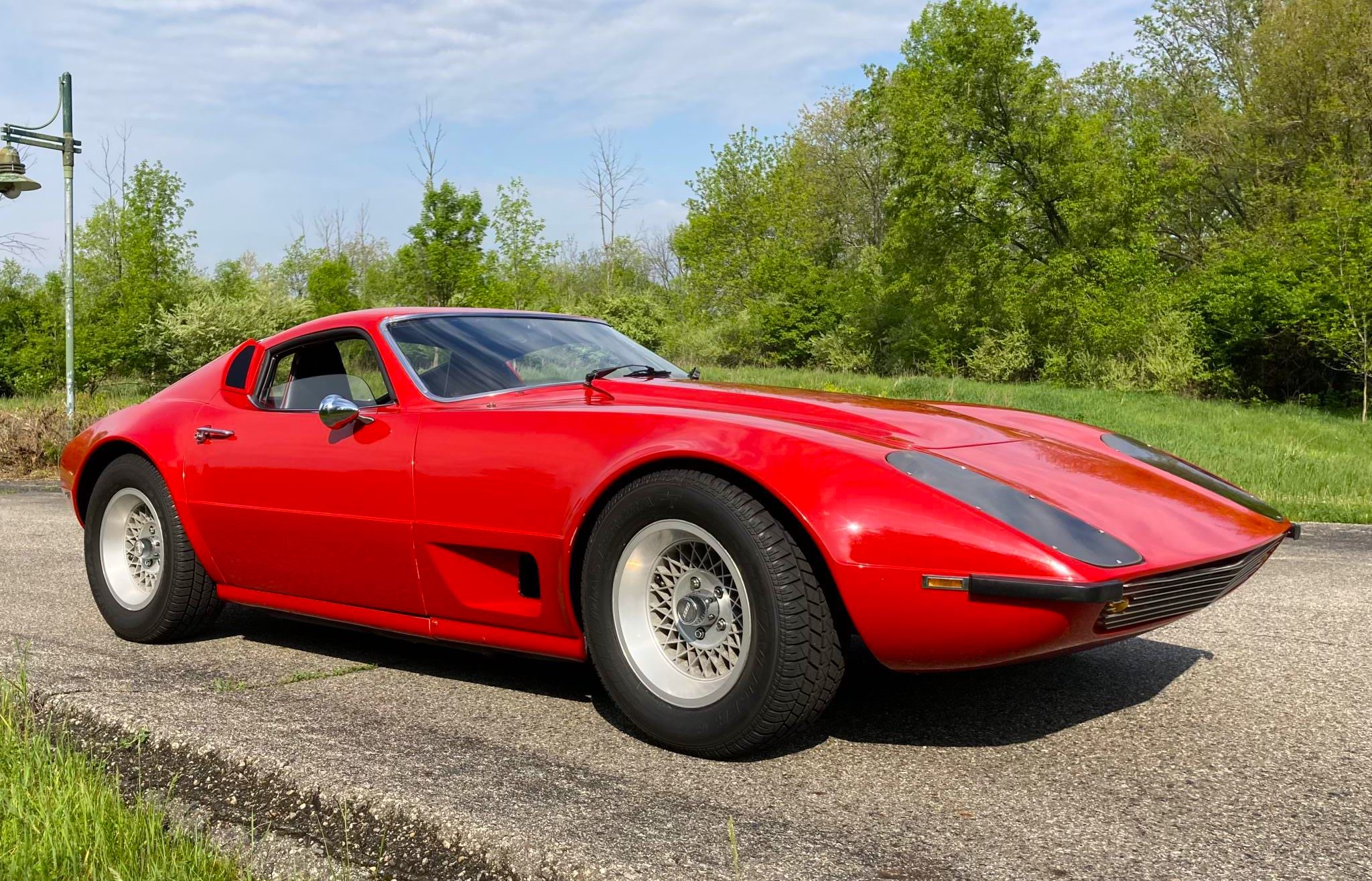
The post Rare American Sports Car: The Fiberfab Jamaican II V8 appeared first on Silodrome.
from Silodrome https://silodrome.com/fiberfab-jamaican-ii/
via gqrds
